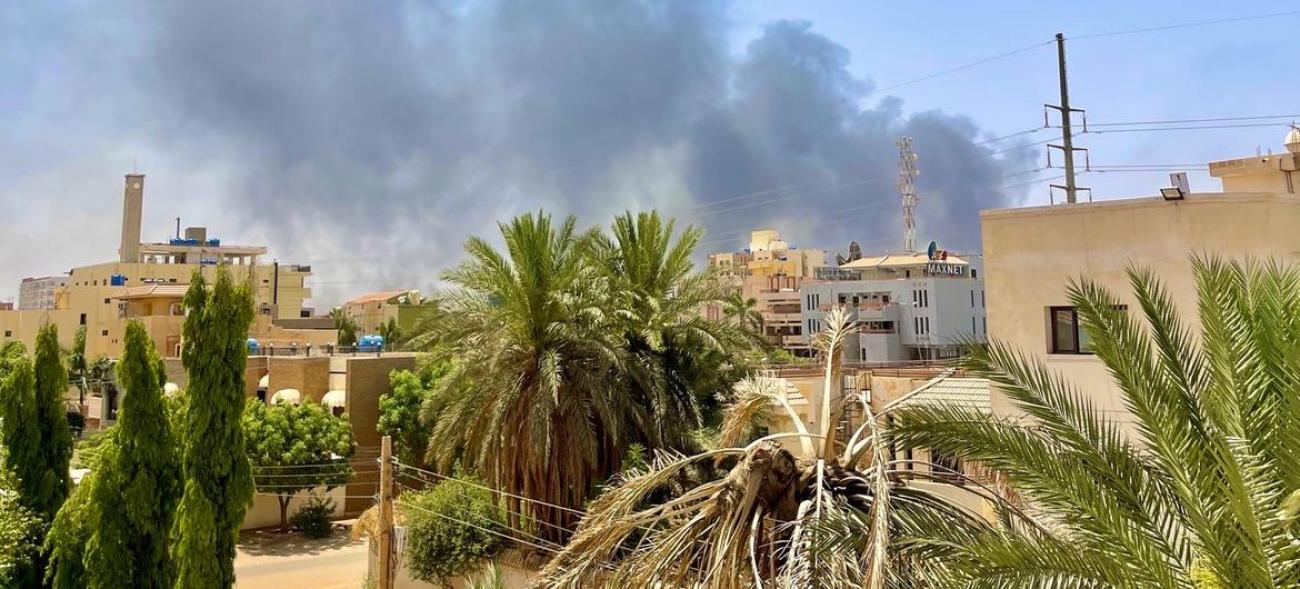The UN High Commissioner for Human Rights, Volker Türk, on Tuesday called for an immediate end to the hostilities in Sudan and pleaded for the opposing sides in the military power struggle to return to the negotiating table, as reports emerged of a proposed 24-hour pause in the fighting, due to start at 1800 local time.
UN Secretary-General António Guterres condemned on Monday the outbreak of fighting that is taking place in Sudan and appealed to the leaders of the Rapid Support Forces (RAF) and the Sudanese Armed Forces (SAF) to immediately cease hostilities, restore calm, and begin a dialogue to resolve the crisis.
“Sudan has already endured so much pain and suffering. The fighting is born out of power games and personal interests that only serve to alienate the democratic aspirations of the population,” said Mr. Türk, adding, “Do those responsible not understand that the civilian population now only craves a peaceful life?”
According to latest news reports, fighting continued in parts of the capital Khartoum, despite the planned 24-hour truce.
Aid operations affected
The Sudanese army and a rival paramilitary group known as the Rapid Support Forces (RSF) have been locked in intense fighting for four days.
The unrest erupted as Sudan appeared to be returning to the path towards democratic transition following three decades of military rule.
International media reported that the sides have agreed to a 24-hour ceasefire, which is set to begin at 6pm, local time.
In the interim, 270 people have been killed and and 2,700 have been injured, according to the World Health Organization (WHO), citing the authorities.
Among those killed were three staff members with the World Food Programme (WFP) working in North Darfur, prompting a temporary suspension of activities across the county. UN agencies in Sudan have also halted most of their operations.
Trapped at home
Most of the fighting has occurred in the capital, Khartoum, where crossfire at the airport also reportedly damaged a UN Humanitarian Air Service (UNHAS) plane which could seriously affect access to remote areas, where needs are highest.
Nearly one third of the Sudanese population, almost 16 million people, were in need of aid at the start of this year.
“Thousands upon thousands of civilians are trapped in their homes, shielding from the fighting, with no electricity, unable to venture out and worried about running out of food, drinking water and medicine,” Mr. Türk said.
‘Common sense must prevail’
Sudan has a history of instability. The military toppled long-time leader Omar al-Bashir in April 2019 after mass protests. The former President had ruled for more than 25 years.
The military then overthrew a power-sharing Government in October 2021, putting two men at the helm - the head of the army and his deputy, who is also the head of the RSF. Both were at odds over the process of restoring civilian rule.
Mr. Türk urged the warring sides to remind their fighters of their obligation to ensure the protection of civilians and civilian infrastructure, such as schools and hospitals, as stated under international law.
The UN rights chief also said he was appalled by reports of attempted rape. He called for prompt, thorough and independent investigations into the killings of civilians, including the WFP staff, along with other reported violations, adding that those responsible must be held to account.
“Only a few weeks ago, Sudan appeared to be on the right path towards an agreement that would restore civilian rule,” said Mr. Türk. “Common sense must prevail, and all parties must act to de-escalate tensions. The shared interests of the Sudanese people must come first.”


